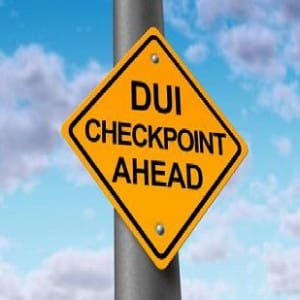 Cal NORML Denounces Unscientific Abuse of Drug Testing
Cal NORML Denounces Unscientific Abuse of Drug Testing
SACRAMENTO – On April 23rd, the State Senate Public Safety Committee will be hearing a “zero tolerance” drug DUI bill that would criminalize unimpaired drivers as DUI based on scientifically unproven drug tests. The bill, SB 289 by Sen. Lou Correa (Anaheim), would make it illegal to drive with any detectable trace of marijuana or other illegal drugs in the blood, regardless of actual impairment.
In testimony to the legislature, California NORML warns that SB 289 would wrongly misclassify countless innocent drivers as DUI. “The science is clear that driving impairment can’t be determined by the presence of marijuana in the blood,” says NORML Director Dale Gieringer, citing studies by government experts.
Contrary to popular misconception, drug tests for marijuana differ from those for alcohol in that they don’t measure current intoxication or impairment. Unlike alcohol, THC blood levels have no direct relation to the actual dosage consumed or active in the body. Instead, they reflect recency of use, spiking to high levels immediately after smoking, then declining quickly to lower levels within an hour or so regardless of dosage. THC can remain in the blood for 8-12 hours in occasional users and six days or more in regular users, long after any impairing effects have faded.
“In effect, SB 289 is equivalent to calling drivers DUI if they’ve had a glass of beer or wine in the past few hours, or left an empty bottle in their trash,” says Gieringer.
The scientific facts and fallacies about drug testing are explained in California NORML’s newly published booklet,”Guide to Drug Testing,” available through www.canorml.org. The guide discusses the reliability and sensitivity of different kinds of tests, their relevance to impairment and performance, how to deal with abusive testing, and its capricious and discriminatory impact on consumers, medical and otherwise.
Accident studies have found that drivers who test positive for marijuana often have no signs of impairment, and in some instances may even drive more safely. Studies have also repeatedly shown that marijuana by itself poses a lesser risk than alcohol and many other legal prescription drugs on the road. Regular users, such as medical marijuana patients, often develop tolerance and can drive safely despite having high levels of THC in their blood.
Unlike other medical drugs and devices, drug tests have never been FDA tested or approved as “safe and effective” for their supposed purpose of improving safety. Studies of states with strict per se drug DUI laws have found no evidence they improve highway safety.
Neither is there evidence of a drug DUI crisis in California. Advocates of “zero tolerance” DUI laws, led principally by law enforcement and drug testing interests, have sought to stir up public fears of increased marijuana accidents on the road. Such fears are belied by accident statistics, which show that highway safety has improved steadily over the years even while access to marijuana has expanded. In California, which enjoys one of the best traffic safety records in the nation, highway fatality rates have posted record lows in recent years. DUI arrests have also been on the decline.
Concerned Californians are urged to contact their legislators in opposition to SB 289 by visiting www.canorml.org.
Text of SB 289: <https://www.legislature.ca.gov/cgi-bin/port-postquery?bill_number=sb_289&sess=CUR&house=B&author=correa>
Cal NORML’s testimony: https://www.canorml.org/Correa_SB289_Sen_tty2.pdf








